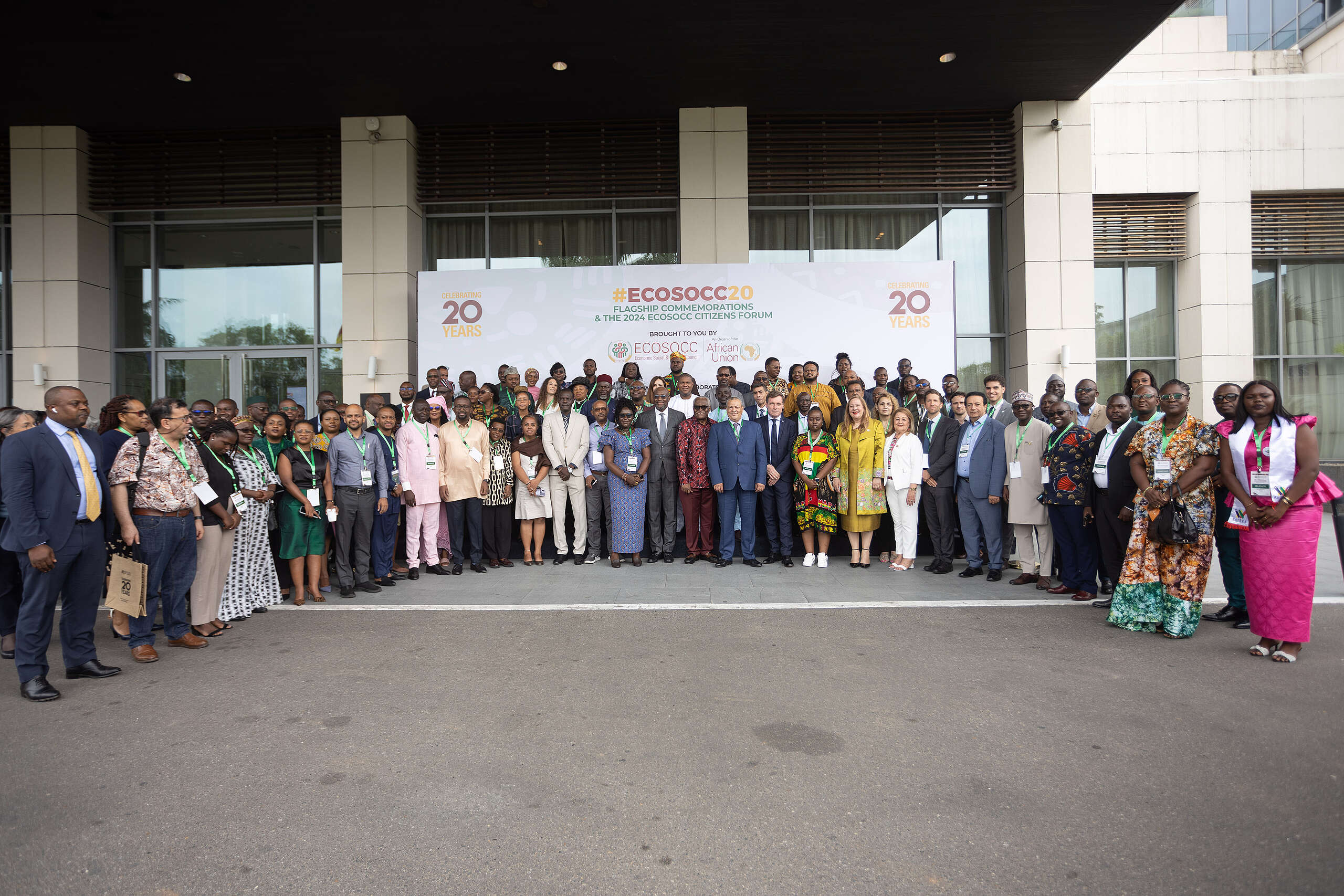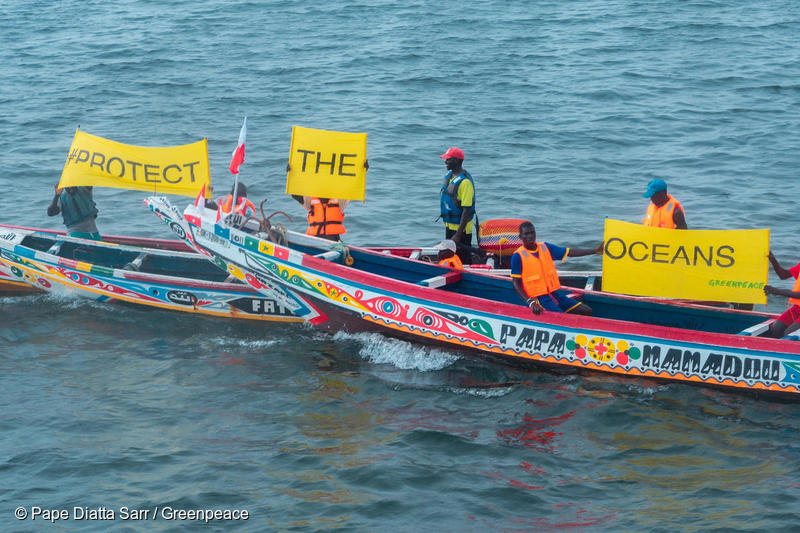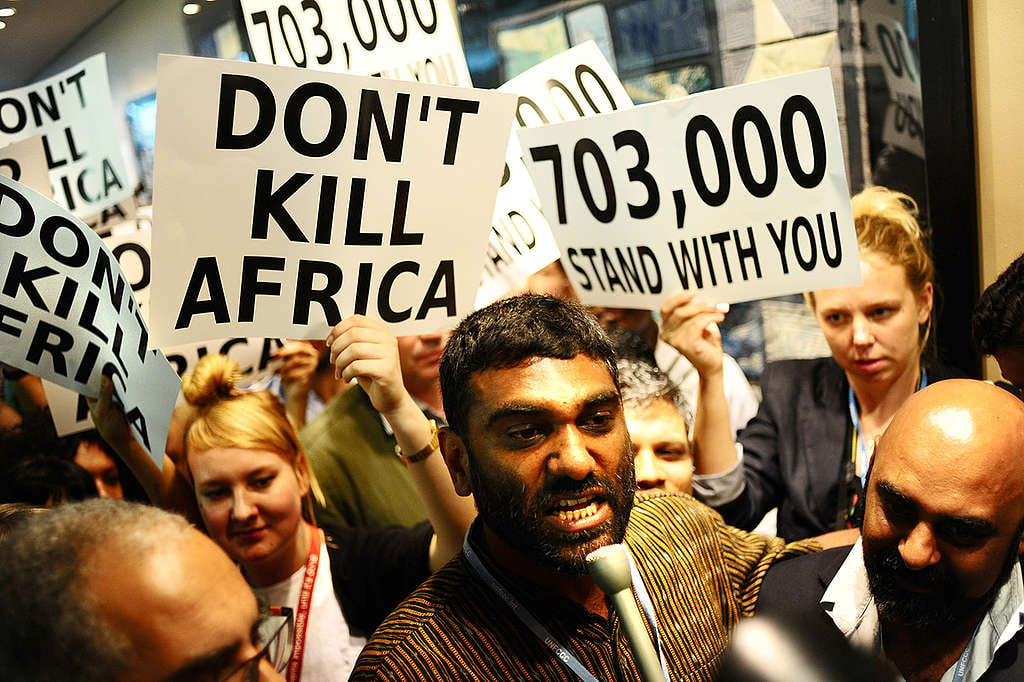
The effects of climate change in South Africa resulting from steady increases in carbon dioxide (CO2) emissions into the atmosphere can no longer be denied or ignored.
Mean annual temperatures in the country have increased by twice the global average (0.7°C).
Hot and cold extremes have increased. Rainfall seasonality has changed, and intensity has increased.
Heat waves are more frequent and dry spells last longer. Crop yields are decreasing, and livestock losses have become more frequent. Food insecurity and food prices have increased, while vector- and waterborne diseases have grown in frequency and intensity.
Since 1980, there have been 86 weather-related disasters, which have affected more than 22 million people and have cost more than R113 billion in losses. In 2018, Cape Town almost became the first major city in the world to run out of water. In the first half of 2021, all provinces experienced flooding.
In a country that is among one of the most climate-vulnerable nations in the world, where many people are poor and where levels of inequality are high, these effects of climate change remain to be a critical challenge.
Without action, the climate breakdown in South Africa will cause the extinction of countless species, destroy some of the country’s most precious ecosystems, and devastate human livelihoods.
Here’s everything you need to know about where we are with the climate crisis here in South Africa.
1. South Africa Is Warming At Twice The Global Rate

South Africa is particularly vulnerable to the effects of climate change. According to this report, southern Africa is particularly vulnerable to climate change, with warming in the interior of southern Africa occurring at about twice the global average rate.
The report further underscores that further drastic increases in events such as heat waves, high fire-danger days and oppressive temperatures impacting on human comfort and health can be expected in a future where climate change mitigation efforts are low or unsuccessful.
South Africa is already a severely climate stress country, ranked 96 out of 182 countries in terms of climate change vulnerability. According to IPCC definitions, vulnerability is “the degree to which a natural or social system is susceptible to, or unable to cope with, adverse effects of climate change, including climate variability and extremes.
What makes South Africa especially vulnerable to climate change is over 80% of the RSA’s land surface can be classified semi-arid to arid, with only 18% being dry sub-humid to sub-humid meaning the country experiences extreme water stress.
In addition to this, in South Africa, more than 100 natural disasters were reported from 1900 to 2017, affecting 21 million people, causing 2200 fatalities, and with an estimated loss of 4.5 billion USD. More recently, in April 2022, severe flooding in the KwaZulu-Natal Province of South Africa resulted in over 400 fatalities, with more than 12000 houses destroyed and more than 40000 people displaced.
As a country that is severely affected by climate change, South Africa should prioritize efforts to achieve the 1.5°C target. This is crucial for the survival of the country as it is expected to face a double impact from global warming compared to the global average.
According to the South African Government in 2015, if the global temperature rises by 2°C, South Africa may experience up to 4°C increase by the end of the century. Due to its status as a developing country, South Africa is particularly susceptible to the negative effects of climate change, including threats to its water and food security, as well as impacts on health, human settlements, infrastructure, and ecosystem services.
Due to South Africa’s structural inequality, ecological dependency, and limited adaptive capacity, the country is significantly more susceptible to the effects of climate change. This leaves certain communities in a precarious position, as they are just one severe weather event away from falling into complete poverty.
2. South Africa Emits the Highest Levels Of Carbon Emissions In Africa
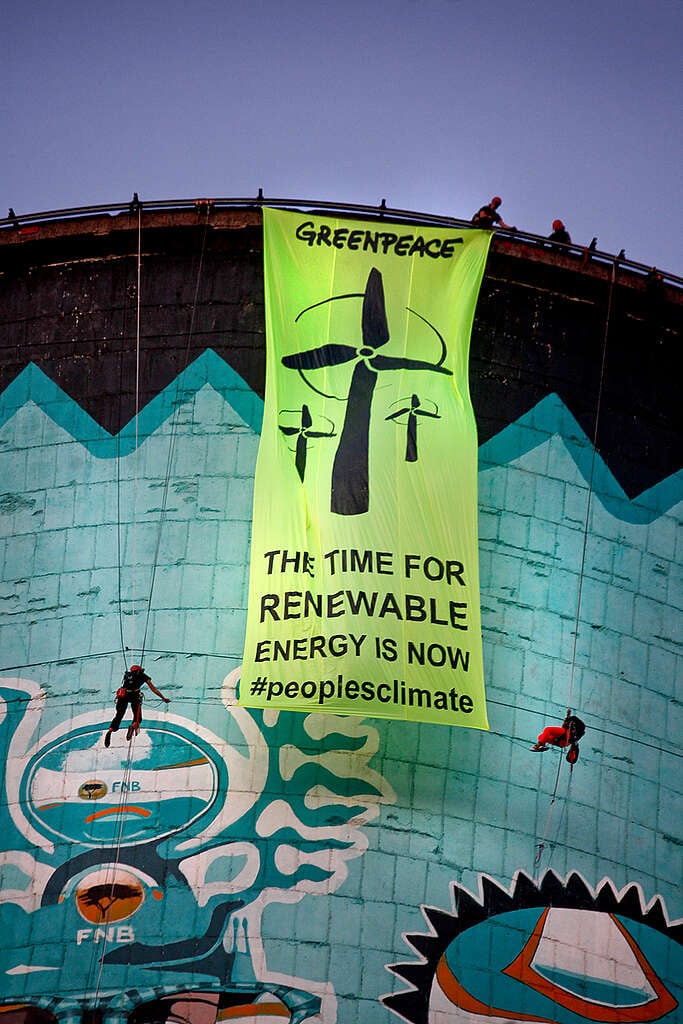
In addition to being the leading emitter of greenhouse gases in Africa, South Africa is also among the top 25 greenhouse gas emitting countries globally. This is the case as the country’s energy and electricity supply majorly originates from coal (nearly 90 per cent of it.)
Currently, South Africa contributes more than one-third of the total energy-related carbon dioxide (CO2) emissions on the African continent. Make no mistake, the monopolistic tyranny of Eskom is responsible for South Africa’s emissions problem and the state’s refusal to shift from coal is the major reason why we are reeling from the various effects of climate change here in South Africa.
Eskom backed by the government makes entry to the market harder and impossible for renewable energy suppliers. Renewable energy is the only path to turning South Africa from a climate criminal to a solution country. Renewable energy in South Africa will be good for her people too. How?
- 4.7 million jobs will be created by 2050 across energy sectors in Africa through a shift to renewable energy.
- Renewable energy players in the market, as opposed to a monopoly supplying energy to a population in the millions, will create a competitive market and as a result lead to affordable energy prices for ordinary South Africans.
3. When It Comes To Climate Change, One Nation’s Emissions Are Everyone’s Problem
Although South Africa (as earlier stated) is responsible for more greenhouse gas emissions than any other country on the continent, the impact of climate change caused by these emissions is felt by everyone, regardless of where they live on the continent.
South Africa’s almost complete reliance on coal for electricity has not only severe consequences in the country such as exacerbating the country’s water crisis but also has dire consequences for other countries on the continent.
Effects such as food and water shortages, displacement of populations, and damage to infrastructure and, ecosystems.
South Africa’s continuous emissions of high levels of greenhouse gases through the burning of coal, not only contributes to the problem but also undermines the efforts of other nations in their effort to build up climate resilience.
It is high time the government views the climate emergency as a collective action problem that requires a coordinated Pan-African response. Eskom’s complete reliance on coal to power South Africa’s economy is undermining the country’s and the continent’s efforts to mitigate and adapt to the impacts of climate change.
4. Climate Change, Often Perceived And Described By Many Simply As “Global Warning”, Has Climatic Ramifications Well Beyond Temperature Rises
Yes, climate change is leading to dangerous levels of temperature increases. However, the climate emergency in South Africa also looks like heatwaves, drought, extreme bouts of rainfall leading to floods, and unpredictable weather. All these are a result of our climate changing for the worse in the country.
Each successive season produces less than the previous one, putting lives at stake. Due to the dwindling food supply, many are facing the difficult choice between having enough to eat or staying warm during the progressively colder winter evenings. We are also witnessing sudden floods, which only serve to further entrench the state of poverty for many.
We all have a right to a stable climate and a healthy and clean environment. But weak climate commitments by the South African government and Eskom’s addiction to coal is putting both our lives and livelihoods at risk. To protect our climate, we must force them to accelerate the just phase-out of fossil fuels and embrace cheaper more sustainable renewable energy.
The government must recognise the social imperative that the Paris Agreement holds and embrace the potential of a Just Transition not only in creating jobs but also in achieving improved public health outcomes.
5. Extreme Weather Events Are Not Natural Disasters But Are A Result Of Human-Induced Climate Change
Human activity is the principal cause of the climate crisis.
The UN’s Intergovernmental Panel on Climate Change (IPCC) kicked off its 2021 report with the following statement: “It is unequivocal that human influence has warmed the atmosphere, ocean and land.”
“From floods to drought, extreme weather is a direct consequence of bad energy policies, the senseless burning of fossil fuels and reckless destruction of our forests,” Amos Wemanya, Greenpeace Africa’s Campaigner.
Climate change is exacerbating both water scarcity and water-related hazards (such as floods and droughts), as rising temperatures disrupt precipitation patterns and the entire water cycle.
Droughts: The Western Cape region has experienced its worst drought in over a century, with severe water shortages affecting thousands of people.
Heatwaves: Climate-modelling studies and our understanding of the greenhouse effect both indicate that the next few decades could bring hot spells that topple many longstanding records. A heat wave doesn’t have to bring the warmest temperatures ever observed to have catastrophic effects. All you need is a long string of hot days combined with unusually steamy nights. Stir in a complacent government, cities that were built for cooler times, the lung-clogging effects of air pollution, and you have a recipe for catastrophe.
Nothing about this is normal. We are in the midst of a human-made climate crisis; one that could be more catastrophic if we fail to act.
For the people living in South Africa, extreme weather translates into death, food insecurity and water shortages, disease, displacement, poverty and conflict. The biodiversity on which many Africans depend is threatened with accelerated rates of extinction by global heating.
6. Economic Impacts Attributable To Climate Change Are Increasingly Affecting Peoples’ Livelihoods And Are Causing Economic And Societal Impacts Across The Country
We are already seeing the economic impacts of the changing climate. If we do not curb greenhouse gas emissions and start to adapt, climate change could seriously disrupt the South African economy. Warmer temperatures, sea level rise and extreme weather will damage property and critical infrastructure, impact human health and productivity, and negatively affect sectors such as agriculture, forestry, fisheries and tourism.
Climate change is one of the biggest threats to economic stability. Heatwaves make us less able to work and reduce productivity. Hurricanes, cyclones and typhoons devastate millions of people, leaving them in absolute poverty after ruthlessly sweeping away their communities. Droughts Shrink harvests, further complicating the arduous task of feeding the nation. The World Bank is warning: if we don’t do something immediately, climate change could push 100 million more people into poverty by 2030.
South Africa will incur projected GDP losses of between R217–R651 Billion by 2050 due to climate change
7. In Urban Settings, Climate Change Has Caused Adverse Impacts On Human Health, Livelihoods And Key Infrastructure
According to the World Health Organization, climate change is the single biggest health threat facing humanity, and health professionals here in South Africa are already responding to the health harms caused by this unfolding crisis. Countries with weak health infrastructure like ours – will be the least able to cope.
Climate change is already impacting health in a myriad of ways, including by leading to death and illness from increasingly frequent extreme weather events, such as heatwaves, storms and floods. But how exactly?
- Spikes in water-borne diseases during flooding events.
- Increase in temperatures is causing Heat-related illnesses like heat stroke, and heat exhaustion.
- Rising temperatures threaten water security which then leads to reduced crop yield. Sudden losses of food production and access to food, paired with a decreased diet diversity are linked to increased rates of undernutrition in many communities.
8. The Burning Of Fossil Fuels Is The Primary Cause Of Current Climate Change In South Africa
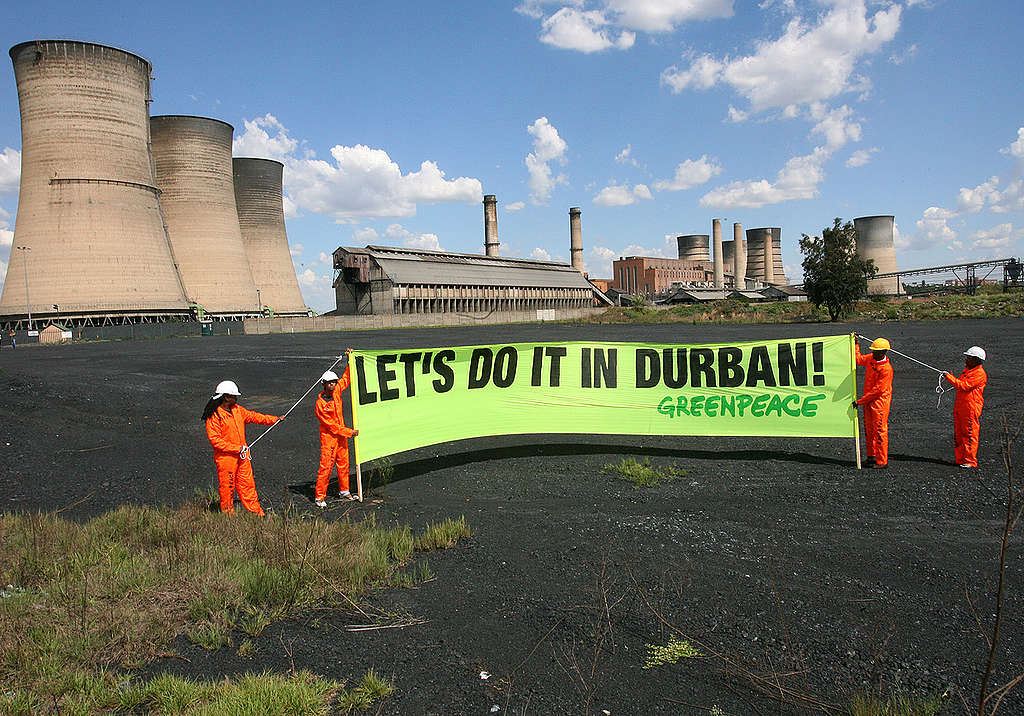
Coal’s time has passed. We need to keep fossil fuels in the ground where they belong.
The Intergovernmental Panel on Climate Change (IPCC) has found that emissions from fossil fuels are the dominant cause of global warming. In 2018, 89% of global CO2 emissions came from fossil fuels and industry.
In addition to exacerbating climate change and other pollution-related public health problems, coal mining leads to the destruction of habitats, deforestation, and water pollution. We can’t afford any new investment in coal.
What is the link between fossil fuels and climate change?
When fossil fuels are burned, they release large amounts of carbon dioxide, a greenhouse gas, into the air. Greenhouse gases trap heat in our atmosphere, causing global warming. Already the average global temperature has increased by 1°C. Warming above 1.5°C risks further sea level rise, extreme weather, biodiversity loss and species extinction, as well as food scarcity, worsening health and poverty for millions of people worldwide.
9. Climate Change Is Exacerbating Existing Social And Economic Inequalities In South Africa
Climate change is a threat multiplier, especially for the poor and most vulnerable sections of those who live in South African society. It can exacerbate existing vulnerabilities such as poverty, hunger, and poor health and hamper progress toward a dignified way of living.
In addition to this when the rural populations in South Africa are exposed to climate risk, the vast majority of the rural poor do not have the means and conditions to adapt.
The most vulnerable groups in society have neither the means to protect themselves against climate events nor to recover from them when they strike.
This is likely to exacerbate existing inequalities: when higher temperatures reduce productivity, earnings and health, and hurricanes destroy homes and employment opportunities, the economic situation of those most in need is made more precarious still, and further worsens their economic standing.
10. Climate Change Is Having A Significant Impact On Agriculture In South Africa And As A Result Food Security
The sector most vulnerable to climate risk is agriculture.
Food insecurity and climate change are closely connected as crop yields are directly influenced by climatic factors such as temperature and precipitation. As rainfall patterns become less predictable and pests and diseases become more prevalent the ultimate result is reduced food availability.
Abnormal amounts of rain have caused historic flooding. If it’s not flooding, increased heat and drought are reducing crop yields. Both these events (droughts and floods) work together so farmers struggle to stay afloat. Farmers then experience reduced income levels due to these climate-related challenges, and food prices can spike as a result.
Furthermore, climate change in South Africa can damage trade and transport systems, and basic infrastructure such as shops may be destroyed, making it difficult for people to access food.
Rising temperatures also negatively affect soil moisture, while floods, droughts, and other extreme weather events destroy crops and their storage and transportation facilities.
11. Global Warming And Climate Change In South Africa Already Contributes To Rural-Urban Migration.
Changing weather patterns drive more and more people to towns and cities.
With more crop failure associated with the recurrence of droughts, more and more people, especially subsistence farmers, abandon their land and migrate into towns and cities to seek alternative income-generating opportunities. Climate change in South Africa is expected to exacerbate the climate-linked migration problem.
One example of this phenomenon can be seen in the Limpopo Province of South Africa. The province has experienced a series of droughts in recent years, which have had devastating impacts on local agriculture and rural livelihoods. As a result, many people have migrated to urban areas such as Polokwane and Johannesburg in search of work and better living conditions.
Another example can be seen in the Eastern Cape Province, where climate change has led to decreased rainfall. This has made it difficult for rural communities to sustain themselves, particularly those that rely on rain-fed agriculture. Many people from these communities have migrated to urban areas where they hope to find work.
This move to cities rarely has a positive impact on the livelihoods of those looking to flee the climate shocks that robbed them of their source of income in the first place.
A majority of South African cities are unequal with limited resources to pull low-income residents out of poverty. Many urban migrants end up settling in dense, informal spaces that are vulnerable to environmental hazards and face a lack of services and inadequate housing.
12. The Country’s Biodiversity Is Also Under Threat From Climate Change, With Many Species At Risk Of Extinction
South Africa is one of 17 ‘mega biodiverse’ countries worldwide; in other words, countries with exceptionally high numbers of unique species in relation to their area.
South Africa has a large diversity of ecological zones and habitats, including lowland and mountain forests, wooded and open grasslands, semi-arid scrubland, dry woodlands, inland aquatic, as well as coastal and marine ecosystems.
South Africa is a party to the Rio Convention on Biological Diversity and has declared several protected areas, including national parks and marine protected areas which are managed by the national government.
Human wellbeing depends fundamentally on the continued existence of well-functioning ecosystems to provide services such as clean water, breathable air, a regulated climate and control of pests and diseases.
Climate change is exacerbating human-driven biodiversity losses.
In South Africa, principally due to habitat loss and degradation, 14% of plants, 17% of mammals and 15% of birds are currently classified as threatened with extinction. The risk of extinction rises ever more steeply with climate change, exacerbated by air pollution and water shortages.
Biodiversity and biodiversity-based ecosystem services are intrinsically dependent on the climate. The climate crisis has posed major threats to biodiversity in South Africa, and impacts are expected to increase as climate change continues and perhaps even accelerates.
The environmental changes being driven by climate change are disturbing natural habitats and species.
Rising temperatures also have the potential to alter ecosystems over longer periods by changing what can grow and live within them.
Changes in climate have the potential to affect the geographic location of ecological systems, the mix of species that they contain, and their ability to provide a wide range of benefits on which societies rely on for their continued existence.
For example, the livelihoods of coastal communities, whp rely on non-commercial fishing and eco-tourism for their survival, remain at risk due to the ongoing loss and degradation of biodiversity.
13. Unabated Climate Change Has Women And Girls Bearing The Brunt Of This Crisis Here In South Africa
The climate crisis is not “gender neutral”. Women and girls experience the greatest impacts of climate change, which amplifies existing gender inequalities and poses unique threats to their livelihoods, health, and safety.
During climate-related shocks, women and girls experience the most severe consequences. In South Africa, climate change has a particularly strong impact on the human rights and dignity of women and girls, due to the intersecting discriminations they face. Women and girls are more likely to live in poverty compared to men, and in disaster situations, they experience higher levels of mortality and morbidity.
Additionally, The climate crisis further erodes the safety and protection of women and girls, violating their basic rights. It intensifies harmful gender norms that lead to increased violence against women and girls, including sexual exploitation, transactional sex to access food and other necessities, forced and early marriages, and forced pregnancies.
14. Single-Use Plastics Further Contributes To The Climate Crisis In South Africa
As 99% of plastics are made from fossil feedstocks, plastic pollution is indubitably linked with climate change. Especially single-use plastic.
Plastics are threatening our ability to keep global temperature rise below 1.5°C, as greenhouse gases are emitted throughout the plastic life cycle. Extraction, refining and manufacture of plastics are all carbon-intensive activities.
Single-use plastic (designed to be thrown away after one use) is dangerous to the environment as most single-use plastic is simply burned as a disposal method further contributing to greenhouse gas emissions.
Contrary to what corporations like Nestle, Unilever and Coca Cola would like you to believe only 9% of plastic waste gets recycled. The rest is either burned or dumped.
Due to the increasing demand for plastic, it is predicted that by 2050, the creation and disposal of plastic will account for 17% of the global carbon budget as per the Paris agreement.
As these giant polluters push the burden to recycle on consumers they have no meaningful strategies to curb plastic pollution.
Every single corporate commitment made by the main plastic polluters allows the continued use of single-use plastic packaging.
We know that we cannot recycle our way out of the plastic pollution crisis yet multinational corporations like Unilever and Nestlé continue to invest time and effort into end-of-pipe solutions. Single-use plastics are an outdated and unsustainable concept altogether, and it is time for these multinational corporations to show leadership and real innovation by investing their massive resources into new delivery systems of refill and reuse.
15. Due to Climate Change The Country’s Rainfall Patterns Have Become More Erratic, Leading To Flash Floods And Water Scarcity In Some Areas
The drastic swing between extreme drought and unprecedented flooding is becoming common in South Africa.
Water stress is expected to significantly affect poor, disenfranchised communities as well as ecosystems that have been underfunded and exploited.
The intensity of extreme drought and rainfall has “sharply” increased over the past years. These aren’t merely tough weather events, they are leading to extremes such as crop failure, infrastructure damage and even humanitarian crises.
The strong link between these climate extremes and rising global average temperatures means continued global warming will mean more drought and rainstorms that are worse by many measures – more frequent, more severe, longer and larger.
16. Seismic Blasting Off The Wild Coast Will Further South Africa’s Climate Crisis
In February 2019, the oil giant Shell announced that they had just made a significant oil and gas discovery 175 km off the southern coast of South Africa.
We know that there is no secure approach for oil drilling, extraction or transportation, which will result in a constant risk of oil spills in the Wild Coast region. Seismic blasting also has catastrophic consequences for the communities that rely on fishing and eco-tourism for their sustenance.
Fortunately, through massive local opposition and legal action, Greenpeace and other partners were able to win the legal battle against Shell.
Shell on their website claims to respect the court’s decision but are reviewing the judgment to determine their next steps regarding the Wild Coast block.
We must remain on our toes as seismic testing will only lead to the subsequent drilling for fossil fuels if oil is found. This will unnecessarily lock South Africa into fossil fuel energy consumption.
The additional greenhouse gas emissions that will originate from new oil and gas fields in South Africa will push our already climate-stressed country closer to its tipping point.
South Africa’s pursuit of energy self-sufficiency through renewables should remain as it does not come at the cost of its unique biodiversity nor planetary or ocean health. This is especially because South Africa is already one of the world’s largest contributors of greenhouse gases and must play its role to help reduce Greenhouse gases.
South Africa should harness its impressive scientific and technical capacity to develop and harness sustainable, renewable energy sources, in line with the country’s vast potential.
17. Sea Level Won’t Stop Rising If Emissions Continue To Rise Unabated Through This Century
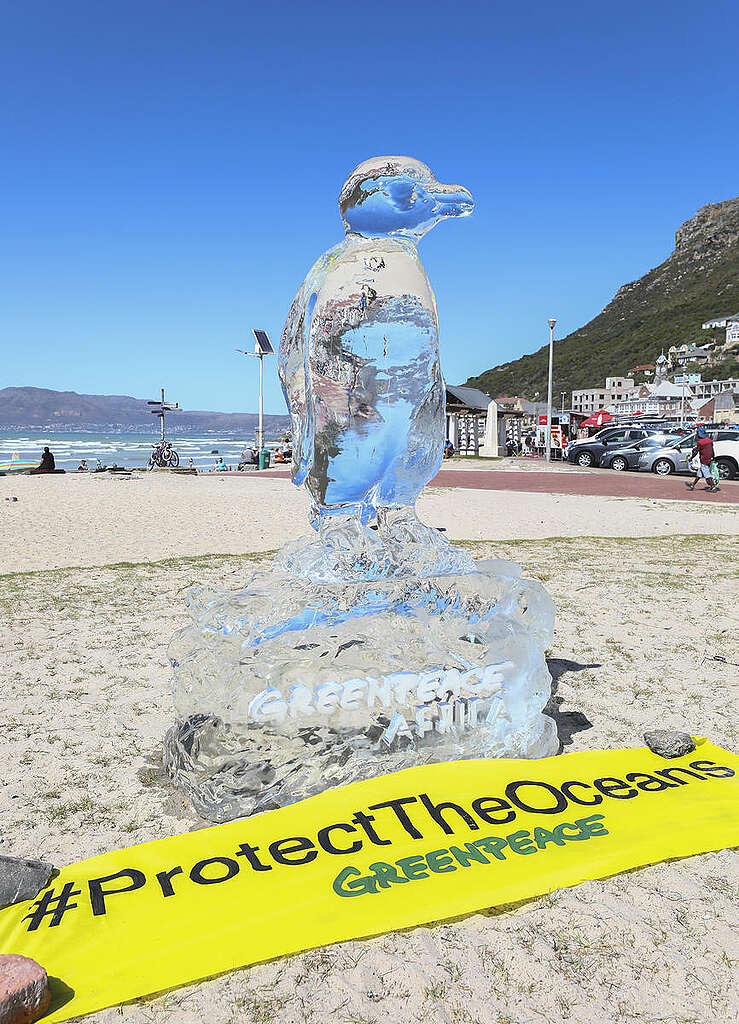
As earlier established the changes in temperatures, rainfall patterns, climate extremes and now sea level rise have a strong human “fingerprint”. Yes, sea levels are rising as a result of human-caused global warming. Sea level rise poses a threat to those who live in South Africa’s rapidly expanding coastal metropolises, by resulting in shrinking land area, coastal flooding, more powerful storm surges.
The rise in sea levels is an outcome of the buildup of greenhouse gas emissions that has resulted in an increase in median ocean temperatures over the past century. Rising ocean and atmospheric temperatures have resulted in the melting of the polar ice caps and thermal expansion (which causes the volume of water to increase), causing the increase in ocean levels.
Coastal erosion, salinisation and sea-level rise have adverse effects such as the pushing of communities who live close to the coastline inland. In addition to this, Sudden-onset climate events caused by sea level rise lead to the displacement of large numbers of people. Cities that are more vulnerable to climate change could as a result lose large population groups.
These climate-linked migration issues will have a significant impact on South Africa if the climate crisis remains unchecked.
18. Unless We Cut Down On Carbon Emissions Temperatures Will Keep On Increasing
The root of global warming in South Africa is Eskom’s reliance on dirty coal.
According to Eskom’s previous CEO, Andre de Ruyter, the parastatal contributes a whopping 44% to South Africa’s carbon emissions, and is “25% more carbon intensive than China.” Eskom, along with other corporate polluters such as Sasol, cause global warming through high emissions of toxic gases like sulphur dioxide (SO2), that have been proven to accelerate the effects of climate change in South Africa.
South Africa’s Department of Environment, Forest and Fisheries (DEFF) is also directly responsible for the effects of climate change in South Africa through its decision to weaken the minimum emission standards (MES) applied to these toxic industries.
To meet 1.5°C we globally need net zero CO2 emissions latest by 2050 and have to halve current emission levels by 2030.
South Africa needs to increase its ambition to reduce CO2 emissions significantly and to radically shift away from fossil fuels like coal.
Global warming has negative effects such as:
- Rising sea levels: As the Earth’s temperature increases, glaciers and polar ice caps are melting, leading to a rise in sea levels. This can result in flooding of low-lying areas and damage to infrastructure such as roads and buildings.
- More intense and severe weather events: Global warming can cause more intense hurricanes, typhoons, tornadoes, and other extreme weather events, resulting in property damage and loss of life.
- Increased drought and wildfires: Rising temperatures can lead to drought conditions in some areas, which can increase the likelihood of wildfires. This can cause damage to forests and wildlife habitats.
- Harm to ecosystems and species: Global warming can disrupt ecosystems, leading to the loss of biodiversity and the extinction of some species. Changes in temperature and precipitation patterns can also affect agricultural production and food security.
- Health impacts: Global warming can exacerbate air pollution, leading to respiratory problems and other health issues. It can also increase the spread of disease vectors, such as mosquitoes that carry diseases like malaria and dengue fever.
- Economic impacts: The negative effects of global warming can result in economic losses due to damage to infrastructure, reduced agricultural production, and the need for expensive mitigation and adaptation measures.
- Changes in precipitation patterns: Global warming is also affecting precipitation patterns, causing droughts in some areas and heavier rainfall and flooding in others.
- Overall, global warming has significant negative effects on the environment, economy, and human well-being. It is important to take action to mitigate these impacts and reduce greenhouse gas emissions to prevent further damage.
19. Climate Change Will Cause Freshwater Availability, Already Critically Limited, To Be Reduced In Future South Africa
As a semi-arid country, freshwater is already South Africa’s most limiting resource in terms of development options, due to the combination of an inherently low and variable rainfall, high evaporative demand, and the rapidly rising demand for water for agriculture, industries and urban areas.
The climate breakdown exacerbates these limitations. For future generations, increasing conflict over scarce water will almost certainly arise, with those communities already unserved, remaining unserved.
With rising number and severity of extreme weather events, floods will occur more often, damaging water infrastructure, affecting quality and precipitating disease outbreaks. Together with ongoing rising temperatures and drought conditions, it is virtually certain that these events will collapse crop production, kill livestock and greatly exacerbate food insecurity.
20. South Africa Cities Are At Risk From Climate Change
This is because many of South Africa’s cities are located in areas that are vulnerable to the impacts of climate change, such as coastal areas and river basins.
For example, the city of Durban has experienced increased flooding in recent years, which has caused damage to infrastructure and homes, as well as posing a threat to public health through the spread of waterborne diseases.
Meanwhile, the city of Cape Town has experienced severe droughts in recent years, which have led to water shortages and restrictions on water use. This has had a significant impact on the city’s economy and on public health, as access to clean water is essential for sanitation and hygiene.
Heatwaves are also becoming more frequent and intense in many South African cities, which can lead to health problems such as heatstroke and dehydration, as well as putting additional strain on electricity systems as people use more air conditioning to stay cool.
21. The Youth’s Vulnerability To Climate Change In South Africa Is High

Today’s youth, and all future generations, are faced with the virtually certain probability of severe harms from a range of increasingly severe impacts caused by climate change. Specifically, increased average surface temperature brought about by increased emissions through human activities, principally the burning of fossil fuels, will drive these changes.
Every additional greenhouse gas emission will exacerbate global heating and the resultant climate change impacts.
Without every effort possible to mitigate emissions, most specifically through the cessation of use of fossil fuels, the lives of today’s youth and future generations will be profoundly negatively impacted by climate change.
If nothing changes, within a decade we will very likely be looking back on today’s extreme events as mild. Daily lives will be vastly more difficult, quality of life and economic opportunities will be greatly diminished.
Care, Abundance And Conscious Support For All Of Us Reeling From The Effects Of Climate Change
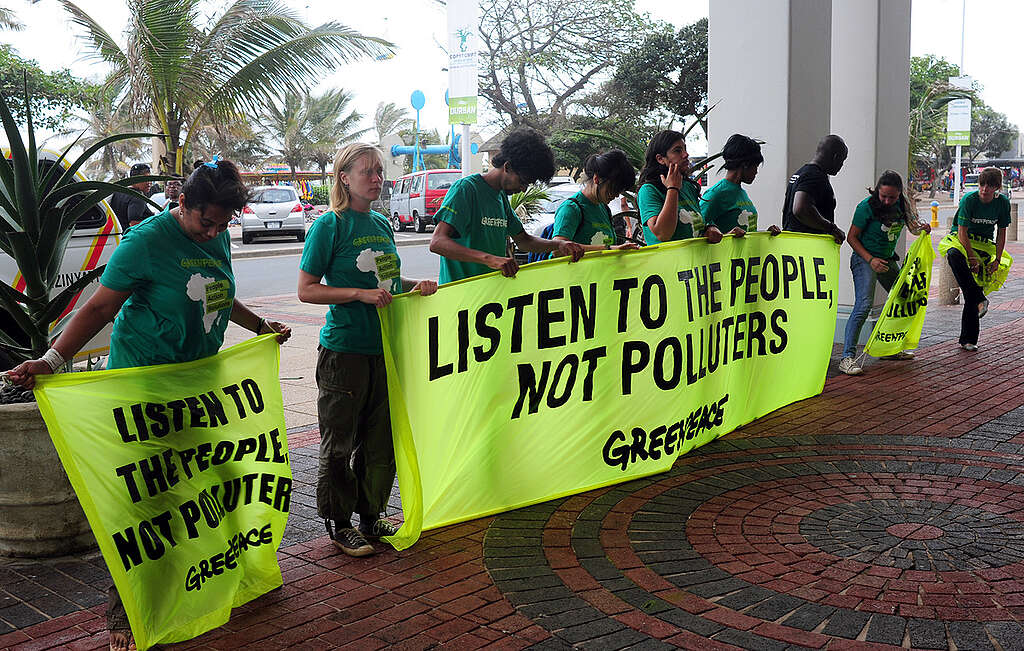
Despite the daunting challenge of climate change, solutions already exist; the key is implementing them.
The evidence from scientific research is unequivocal, as is the legal framework. Instead of passively supporting them, the South African authorities must take action to constrain Eskom and establish courageous public policies that prioritize the needs of the people, with the aim of significantly decreasing carbon emissions.
The sole viable prospect for a sustainable future involves shifting away from fossil fuels towards a low-carbon economy.
Additionally, Greenpeace Africa is urging President Ramaphosa to declare a climate emergency here in South Africa as this will provide the necessary resources to implement contingency plans that can help mitigate further damage and enable South Africans to adapt to the fast-changing climate.
You Can Help
What’s at stake? Year in, year out, thousands more people living in South Africa are displaced, lose their livelihoods, suffer the punishing consequences of extreme weather, and are pushed further into extreme poverty as a direct result of climate change.
Join Greenpeace Africa climate activists in demanding that the South African government put climate change and its effects on South Africa and her people at the top of their agendas.
A transformational change in energy policy now, based on no new fossil fuel investments, and rapid phase-out of all existing fossil fuel use is what we are fighting towards every day.
The challenge of preserving the Earth as it is now and ensuring no further harm comes to it is enormous. Your support helps us continue advocating for Africa and her people. You can make a difference by donating to us today.

